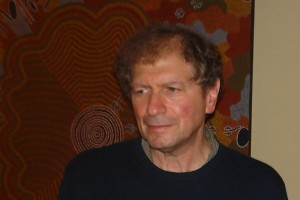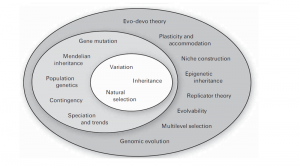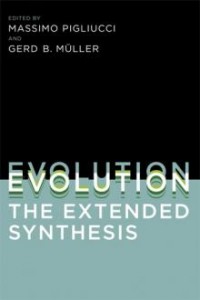 In the six decades since the publication of Julian Huxley’s Evolution: The Modern Synthesis, spectacular empirical advances in the biological sciences have been accompanied by equally significant developments within the core theoretical framework of the discipline. As a result, evolutionary theory today includes concepts and even entire new fields that were not part of the foundational structure of the Modern Synthesis.
In the six decades since the publication of Julian Huxley’s Evolution: The Modern Synthesis, spectacular empirical advances in the biological sciences have been accompanied by equally significant developments within the core theoretical framework of the discipline. As a result, evolutionary theory today includes concepts and even entire new fields that were not part of the foundational structure of the Modern Synthesis.
Interview
Stuart Newman is one of the “Altenberg 16” scientists who kicked off a reformulation of the theory of evolution, the “extended evolutionary synthesis,” July 2008 at Konrad Lorenz Institute. His scientific investigation into form (limb bud development) was first showcased to an international audience a quarter century ago – in a 1982 Newsweek cover story on the embryo.
In this interview, Newman explains not only what the concept of the ‘extended evolutionary synthesis” entails, but also how this concept may be an answer to ‘creationists’ and those who invoke ‘intelligent design’ to explain complex structures in biological life. Lacking biological en physical explanations for molecular and biological complexity, some theists allow themselves reducing the Devine to a ‘god of the gaps’. Self organisation of inorganic and organic matter, cells and tissues, as seen in physics and chemistry as well as in cell and developmental biology, show ‘saltational’, ‘orthogenetic’ and maybe even ‘Lamarckian’ occurrences in the history of life and may give us a much deeper understanding of how biological evolution takes place. This does not exclude darwinian evolution but surpasses it. Genetic en darwinian mechanisms as incorporated in the “mothers synthesis” are included in a even vaster understanding of how complex life emerges from more simple and eventually from non-living matter. Genes and natural selection are just part of the story of the evolution of life.
 In ‘Evolution – the Extended Synthesis’ edited by Massimo Pigliucci and Gerd B. Müller (Mit Press, 2010), most of the contributors accept many of the tenets of the classical framework but want to relax some of its assumptions and introduce significant conceptual augmentations of the basic Modern Synthesis structure—just as the architects of the Modern Synthesis themselves expanded and modulated previous versions of Darwinism. This continuing revision of a theoretical edifice the foundations of which were laid in the middle of the nineteenth century—the reexamination of old ideas, proposals of new ones, and the synthesis of the most suitable—shows us how science works, and how scientists have painstakingly built a solid set of explanations for what Darwin called the “grandeur” of life.
In ‘Evolution – the Extended Synthesis’ edited by Massimo Pigliucci and Gerd B. Müller (Mit Press, 2010), most of the contributors accept many of the tenets of the classical framework but want to relax some of its assumptions and introduce significant conceptual augmentations of the basic Modern Synthesis structure—just as the architects of the Modern Synthesis themselves expanded and modulated previous versions of Darwinism. This continuing revision of a theoretical edifice the foundations of which were laid in the middle of the nineteenth century—the reexamination of old ideas, proposals of new ones, and the synthesis of the most suitable—shows us how science works, and how scientists have painstakingly built a solid set of explanations for what Darwin called the “grandeur” of life.
Contributors to ‘Evolution – the Extended Synthesis’ :
John Beatty, Werner Callebaut, Jeremy Draghi, Chrisantha Fernando, Sergey Gavrilets, John C. Gerhart, Eva Jablonka, David Jablonski, Marc W. Kirschner, Marion J. Lamb, Alan C. Love, Gerd B. Müller, Stuart A. Newman, John Odling-Smee, Massimo Pigliucci, Michael Purugganan, Eörs Szathmáry, Günter P. Wagner, David Sloan Wilson, Gregory A. Wray
About the Editors:
- Massimo Pigliucci is Professor of Philosophy at the City University of New York.
- Gerd B. Müller is Professor of Theoretical Biology at the University of Vienna and Chairman of the Konrad Lorenz Institute for Evolution and Cognition Research. He is a coeditor of Origination of Organismal Form (MIT Press, 2003) and Modeling Biology (MIT Press, 2007).
Reviews:
“An impressive and provocative overview; it should become the focus of semester-long graduate student reading groups across the country, as it has at my home institution.” — Michael J. Wade, BioScience
Endorsements
- “The essays in this volume provide ample food for thought, and from all the major food groups! The Modern Synthesis in evolutionary theory, and what lies beyond, are assessed here from multiple angles. This book will greatly interest evolutionary biologists and philosophers of evolutionary biology alike.” Elliott Sober, Hans Reichenbach Professor and William F. Vilas Research Professor, Department of Philosophy, University of Wisconsin-Madison
- “The twenty-first century will likely be the century of biology, just as the twentieth century was the century of physics. The central, organizing theory of biology isand will remainthe theory of evolution. If you want to know how the theory of evolution will likely expand and be configured in the twenty-first century, reading Evolution
‘Evolution – the Extended Synthesis’
edited by Massimo Pigliucci and Gerd B. Müller
(Mit Press, 2010)




